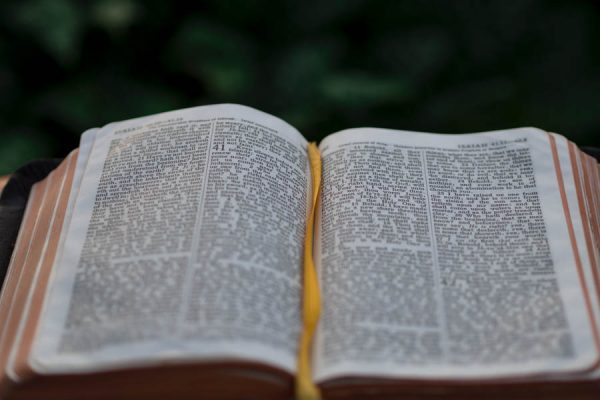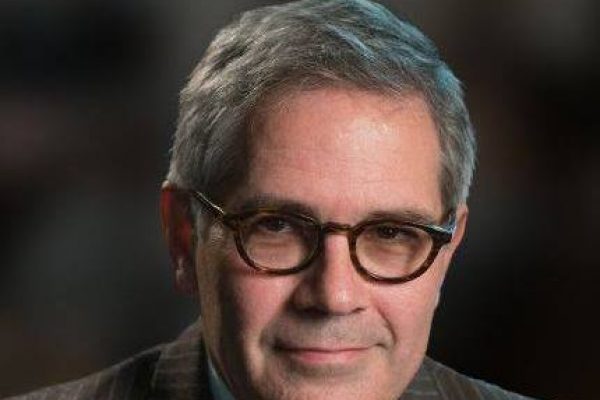The Local Lens: Chaput’s Amoris Laetitia Guidelines Have Caused Quite the Stir
Philadelphia’s Archbishop Charles J. Chaput created a stir when he published his “Pastoral Guidelines for Implementing Amoris Laetitia,” his clarification of Pope Francis’ apostolic exhortation on love and the family.
In those guidelines, Chaput makes it clear that Catholic teachings forbid some Catholics from receiving communion: divorced and remarried Catholics (without an annulment); unmarried couples who live together; and sexually active gay people or gay people in same-sex partnerships.
The archbishop’s advice for divorced and remarried Catholics who want to receive communion is to live together as brother and sister. As for gay Catholics who want to receive communion, no doubt Chaput would want them to join groups like Courage, a gay Catholic organization approved by the church for men and women who wish to follow church teaching regarding sexuality.
Reaction to Chaput’s guidelines was swift. Mayor Kenney quickly tweeted that Chaput was “anti-Christian” because “Jesus gave us gift of Holy Communion because he so loved us. All of us. Chaput’s actions are not Christian.”
Kenney grew up Catholic, but he is not practicing. Perhaps he forgot what his old Baltimore Catechism said about these issues? He may be mayor of one of the most progressive cities in the country — a city that’s maintained its confusing, but not illegal status as a Sanctuary City for undocumented immigrants — but secular progressiveness has nothing to do with subordinating faith to a political agenda. It was Kenney, after all, who once called Pope Francis “freaking awesome,” adding, “the Pope makes me want to return to the Church.”
Kenney was referencing Francis’ freewheeling style like washing the feet of Muslims on Holy Thursday and his famous comment about gay priests: “Who am I to judge?” But style only goes so deep. Pope Francis has really done nothing to change Catholic doctrine. He’s changed the wallpaper in the room, but not the structure of the walls themselves.
Local columnists didn’t lose any time commenting on the mayor’s tweet. The Inquirer’s Christine Flowers, an ardent Catholic, opined, “And I’m betting that my great-grandparents weren’t clear about that whole divorce thing, where you can’t take communion if you remarry without the benefit of an annulment. The church has been very ambiguous about those things over the years.” Yes, about as ambiguous as a ton of bricks.
The Daily News’ Ronnie Polaneczky, an another non-practicing Catholic, offered: “So Chaput and the Pope are on the same page, even if Kenney and others — including me — don’t like it.” Then she hits upon the problem. “What Francis doesn’t say specifically, though, is that Catholics in irregular relationships should be denied Holy Communion. Perhaps the denial is implied, since he writes often about the Eucharist being open to all who seek the sacrament of Penance for their sins — and sex outside of Catholic marriage is a sin. Still, it reads a little murky.”
It reads murky because it is murky: Pope Francis seems to be leaving the option for communion open. Perhaps Archbishop Chaput sensed this and this motivated him to add his own guidelines, substituting Francis’ ambiguity for a couple of those bricks I mentioned a few sentences back.
Other Catholic clerics had a completely different take on Amoris Laetitia, (AL). Cardinal Schonborn of Vienna, for instance, believes that in some cases the divorced and remarried may be admitted to the Sacraments.
“I believe that the Pope is obligating us here, for the love of truth, to discern the individual cases both in the internal form and in the external form.” A different interpretation than Chaput’s, indeed.
American Cardinal Raymond Burke, who once said that Catholicism is facing “the worst crisis in its entire history due to a betrayal of truth by those who claim to follow Christ and to be members of the Church,” categorizes AL as “just a collection of the Pope’s personal reflections.”
Although Pope Francis made a reference to divorced and remarried Catholics not being able to receive communion when he spoke to reporters during his return trip from Mexico in April of this year, in AL he doesn’t follow up on that. This is why many clerics believe that the ambiguous wording of Amoris Laetitia, makes the Pope’s statement in April moot.
Claire Chretien of Life Site News reports that there’s enough ambiguity in AL, apparently, to encourage forty-five Catholic prelates, academics, and clergy to submit an appeal to the Dean of the College of Cardinals requesting that the cardinals and Eastern Catholic Patriarchs petition Pope Francis to reject a list “of erroneous propositions that can be drawn from Amoris Laetitia.”
Bishop Thomas J. Tobin, a staunchly conservative American bishop, also agrees that Pope Francis’ decree is marked by ambiguity. Tobin believes that the ambiguity is intentional on the pope’s part.
“That explains why,” he told one source, “that we’ve had very different interpretations of the document from two prominent leaders of the Church — Archbishop Charles Chaput of Philadelphia and Cardinal Christoph Schonborn of Vienna.”
It’s interesting to note that when The Inquirer posted the Chaput-Kenney story, most of the 1,000 or so comments in the comments section were negative.
Non-Catholics and former Catholics had the most to say, but the comments from non-Catholic comments were the most negative. It’s amazing to me how people who consider themselves secular and “religion free” could care so much about what goes on inside the Catholic Church. Do they put as much energy into Mormon Church prohibitions against alcohol and caffeine? Then there are politicians like Brian Sims, whom I generally admire (and voted for), who tweeted, “Archdiocese of Phila. Takes another step backwards & proudly announces further exclusion of LGBT. Give em hell.” Sims once boasted that he was “the only elected official in Pennsylvania that didn’t set foot in a house of worship to get elected.” Okay, I’ll give him a gold medal for that, but what’s he doing talking about church communion rules? This is not a Harrisburg-related issue.
No doubt “good guy” Sims is ticked off because the strides that have been made in secular society regarding LGBT rights often cannot make any headway at all in the world of religion. It just seems weird to me when politicians who have never set foot inside a church are suddenly concerned about who is allowed and not allowed to receive Holy Communion. When you become a regular communicant, then you have a right to speak your mind, but not before.
The National Review caught the Chaput-Kenney story with this headline: Philadelphia Mayor Discovers That Catholics Are Catholic.
Mollie Hemingway, a senior editor at The Federalist, commented that is “was scary to hear a government official [Mayor Kenney] speak against a Christian leader this way.”
The notion of what is a sin, and what constitutes “worse” or “lesser” sins comes into play here. In some ways it seems that religion, or in this case Chaput’s tendency towards the legalistic, shows that many clerics are far more concerned with sins of the flesh than with other sins. Why would being divorced and remarried be any worse than embezzlement, tax evasion, slander, avarice, giving false testimony, murder or theft? Are these sins ever mentioned in a communion prohibition context? If not, why not? Why does the church seem so obsessed with sins of the flesh?
Why are the ‘sinner groups’ mentioned in Archbishop Chaput’s directive given a sterner scolding when other sinners are just told to go to confession, after which they can receive communion?
Is it really wise for the church to act as a police force when it comes to who should receive communion? If faithful Catholics know what the rules are, who should receive and who should not then they also know that by breaking the rules they have a matter for confession. Sometimes one’s relationship with God ought to be private.
Then there’s the big question: What does Pope Francis think of Archbishop Chaput’s directive? Ordinarily, an archbishop put in charge of a major American city like Philadelphia is promoted to Cardinal status, but Chaput continues to remain an archbishop.
Could this be an indication of the Pope’s displeasure with the archbishop’s views?





